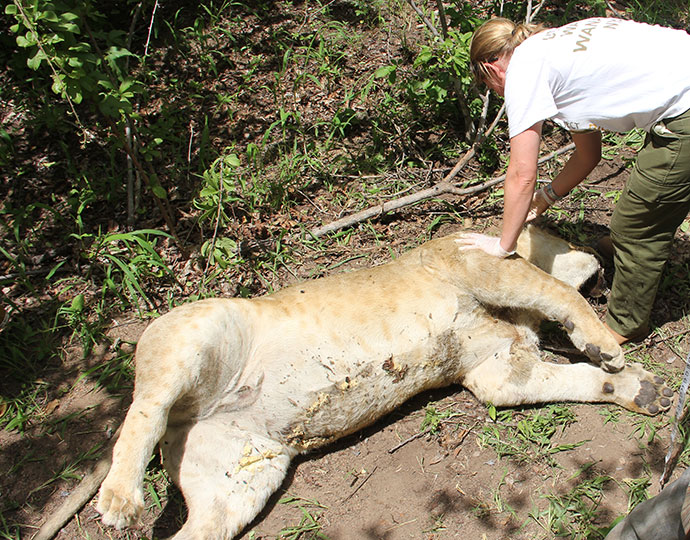Ruaha Carnivore Project Update
10th September 2015In Southern Tanzania lies the Ruaha National Park which is not only the largest park in Tanzania, but in East Africa. This remote and wild park is famous for large herds of elephants and some of the world’s most important carnivore populations including over 10% of the world’s lions and globally significant populations of cheetahs, leopards, spotted hyaenas and the endangered African Wild Dog.
In 2009 The Ruaha Carnivore Project was established with the aim of gathering data on carnivore populations and reducing human-carnivore conflict. This is an area where the local communities are extremely poor and carnivores frequently attack villagers’ livestock causing extra financial difficulties for them.
Unfortunately this conflict has led to the highest recorded rate of lion killing in East Africa in modern times and support is needed to help reduce attacks and to encourage long term human-wildlife coexistence in this vital landscape. The Ruaha Carnivore Project is working hard to reduce these carnivore attacks by providing predator-proof livestock fencing and by starting the first trial of specialised guarding dogs in East Africa.
In addition they have developed a school-twinning programme, sponsored secondary school scholarships, provided medicines and equipment to rural clinics and subsidised veterinary medicines to local households. In addition, they have provided extensive education about wildlife through village DVD nights and visits to the Park which allow people (often for the first time) to see the wildlife in a non-threatening way.
This work with the local communities educating them about the need for conservation of wildlife has had great success with carnivore killings reduced by 80%. At the moment this work is only in 5 core villages, but the plan is to extend it across all 2 villages in the Ruaha landscape which should provide significant, long term benefits to both people and wildlife.
This vital work has led to the Project’s Director, Dr. Amy Dickman, being recognised by Prince William in the prestigious Tusk Conservation Awards and it would be wonderful to see the work of this essential project rolled out throughout Ruaha.



